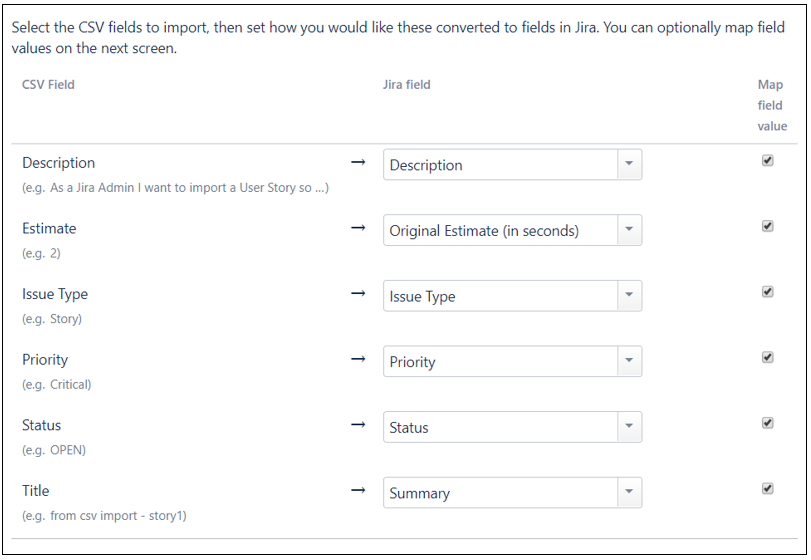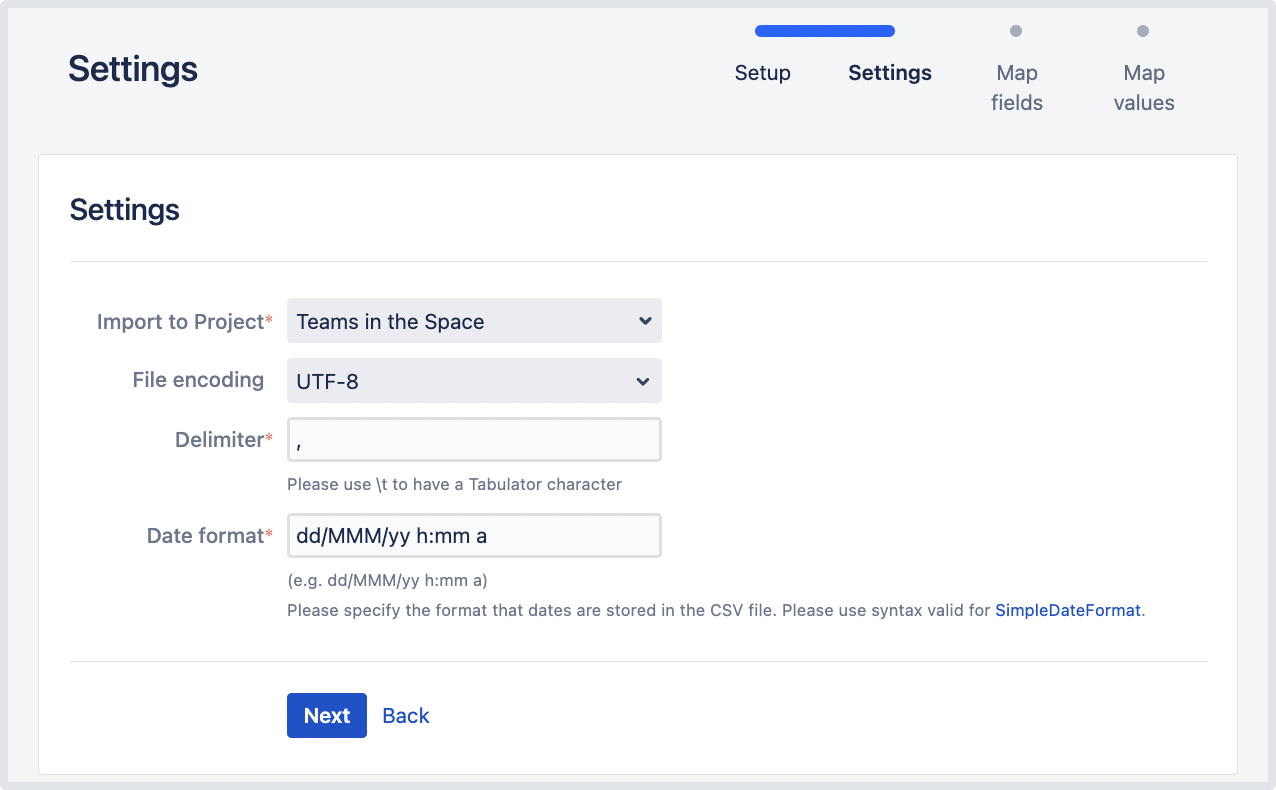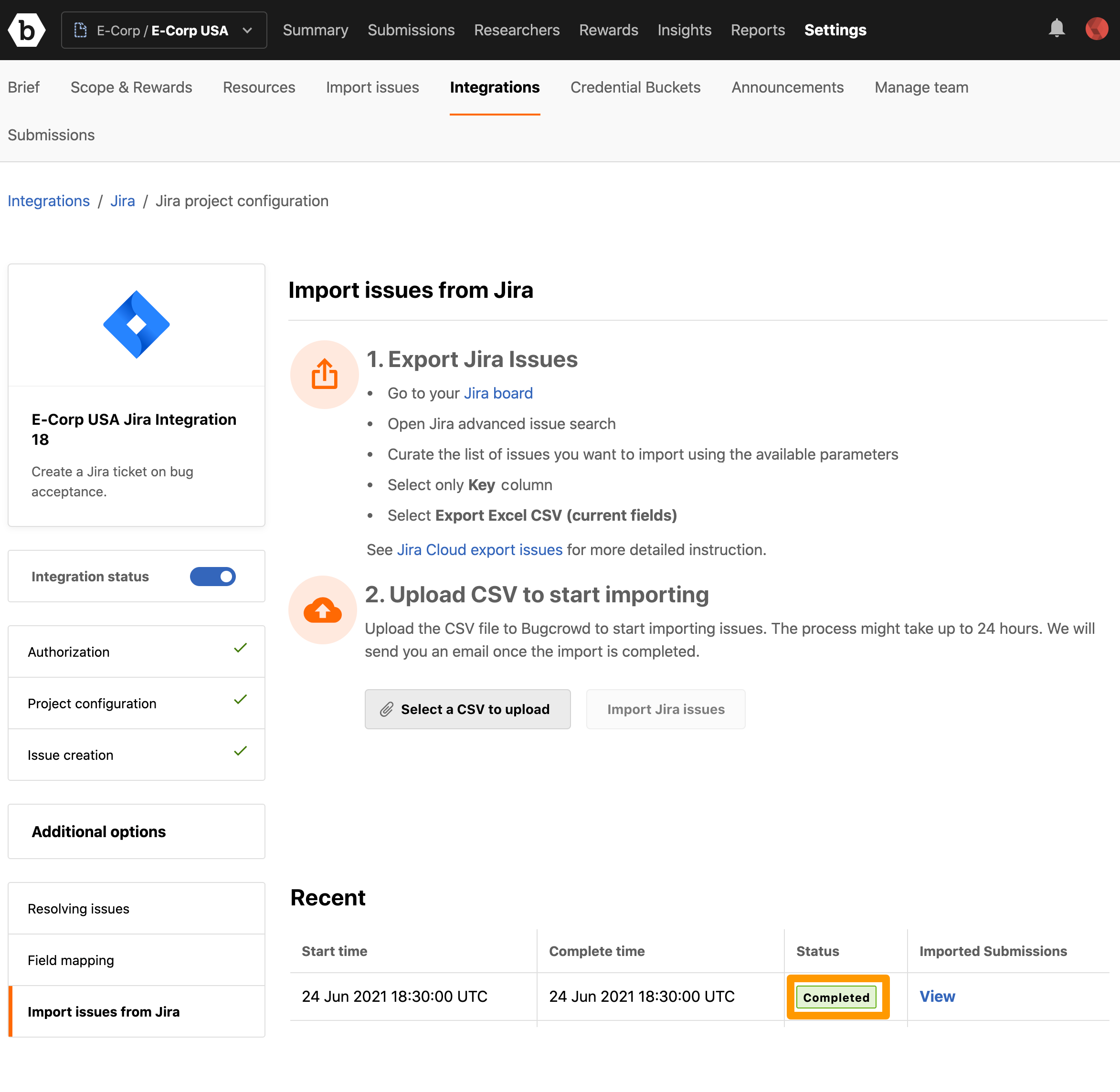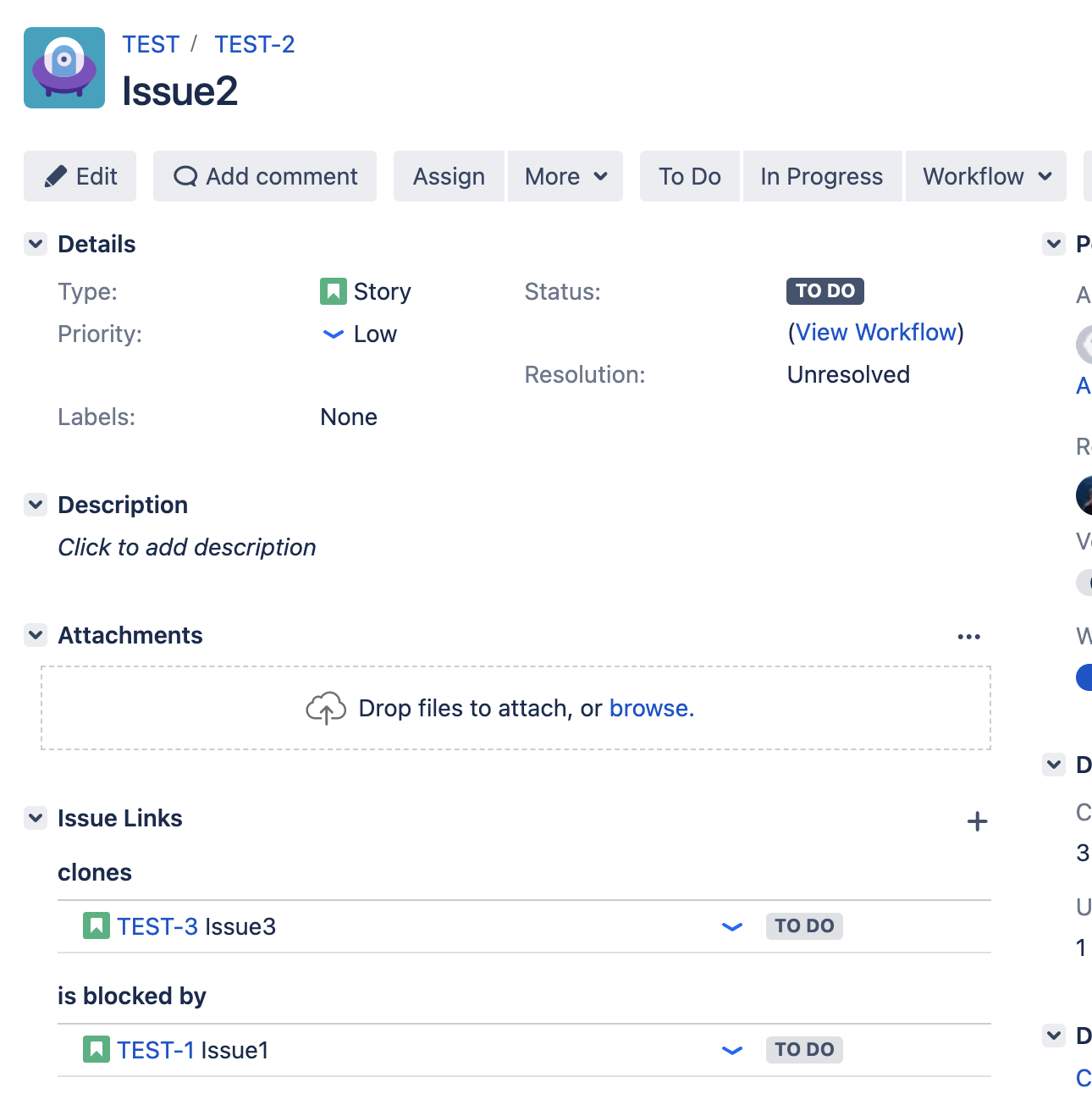Jira Import Issues From Csv Template - This feature can be very useful when you have a large number of issues to create or when you need to import issues from an external source. Server and data center only. Specify a color to represent this priority. Select an icon to represent this priority. Fields are separated by commas, and any content that must be treated literally, such as commas and new lines/'carriage returns' themselves are enclosed in quotes. This article contains instructions to help in importing issue links to jira from a csv file. If you already have, jump to the next step Web yes, you can export jira issues into a csv format. Click on begin import and once done downloading your issues will be available in the project you chose. Make sure that every issue in your csv file has a project name and project key in the relevant column.

How to import issues into JIRA
Web you can import issues from your csv file into different projects through a csv file. Select csv from the import formats. Web under the jira admin settings, navigate to external system import. Is there a.xlsx/.csv template that contains all the jira fields that i can map my fields to? Web / jira cloud administration resources / discover jira cloud.

Importing issues into Jira through csv Mpowerhunt Consulting Pvt. Ltd.
Web how to import issue links from a csv file in jira platform notice: Select the destination project where you want the issues to be imported from the csv file. Web the csv importer allows you to import data from external systems that can export their data in a tabulated format. I attach an example of my csv. The date.

Creating issues using the CSV importer Jira Core Data Center and
Issue key (for future mapping jira issues), summary, checklists, smart checklist progress. When i start the process issue key and summary are correctly upload but not the worklog column, i recive this error: Web under the jira admin settings, navigate to external system import. To do this, add two columns to your csv file with the project name and project.

How to export issue and comment in CSV with proper format to import in
See configure custom hierarchy levels for more details. Select the destination project where you want the issues to be imported from the csv file. This article only applies to atlassian products on the server and data center platforms. The most direct way to do this is to first open the issue navigator and search for the issues you want to.

Importing Issues from Jira Bugcrowd Docs
Watch like be the first to like this 1240 views 1 answer 0 votes alexey matveev rising star Web oct 01, 2020 hello @jeson duthie welcome to the atlassian community. When i start the process issue key and summary are correctly upload but not the worklog column, i recive this error: Web hello i have an issue with csv import..

Creating issues using the CSV importer Jira Service Management Data
If you still don't have any issues created, manually create a new issue in your jira site. Make sure that every issue in your csv file has a project name and project key in the relevant column. Watch like be the first to like this 1240 views 1 answer 0 votes alexey matveev rising star One field is linked to.

"Import Issues from CSV" option is missing from Issues menu Jira
Choose which csv field matches your jira field, tick the boxes, and click on next. Web there are a few possible reasons: To do this, add two columns to your csv file with the project name and project key headings. Web 1) configuring the hierarchy first, we need to configure at least one hierarchy level above epic in advanced roadmaps..

How to import issue links from a CSV file in Jira Jira Atlassian
One field is linked to reference existing jira assets. Under jira service management, select authentication. Click on begin import and once done downloading your issues will be available in the project you chose. Select csv from the import formats. Web there are a few possible reasons:

Creating issues using the CSV importer Jira Service Management Data
💡 one of them has to be a summary field. Import and export your data to and from jira cloud. This feature can be very useful when you have a large number of issues to create or when you need to import issues from an external source. Web select the external system import option from the left navigation. Web select.

Importing and Exporting Tests (CSV) Xray for Jira 3.1 Xray Archive
Under jira service management, select authentication. Web discover jira cloud products. Read more about advanced import functionalities for jira administrators in migrating from other issue trackers and importing data from csv there are two main steps to use the csv importer: Select csv from the import formats. This feature can be very useful when you have a large number of.
The format of dates is not correctly set in the import configuration file. Web select the external system import option from the left navigation. Web create jira issues with a csv import that references asset objects edited bernd anderer apr 02, 2023 i want to run a csv import to create jira issues. Web understanding issue types in jira; You can update the value as per your requirement as well. These would be the steps: If you still don't have any issues created, manually create a new issue in your jira site. Choose which csv field matches your jira field, tick the boxes, and click on next. Web yes, you can export jira issues into a csv format. I attach an example of my csv. Make sure that every issue in your csv file has a project name and project key in the relevant column. Fields are separated by commas, and any content that must be treated literally, such as commas and new lines/'carriage returns' themselves are enclosed in quotes. You will have tons more field options to choose from, so use the combo box to find the field name you need. It also allows you to create your own csv file to perform bulk issue creation and updates. If you already have, jump to the next step Select csv from the import formats. Web you can import issues from your csv file into different projects through a csv file. This might be helpful when you are migrating from an external issue tracker to jira. Follow the prompts to complete the setup. The date format for custom fields must match the date format in input file which has a default format of yyyymmddhhmmss.